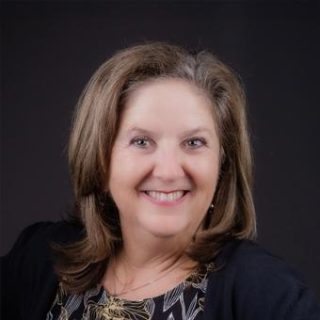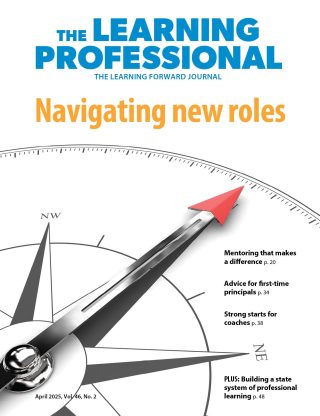FEATURE ARTICLE
Leading In Reading
Nebraska district nets success with evidence-based learning
By Learning Forward
August 2014
Read the remaining content with membership access. Join or log in below to continue.
Sed ut perspiciatis unde omnis iste natus error sit voluptatem accusantium doloremque laudantium, totam rem aperiam, eaque ipsa quae ab illo inventore veritatis et quasi architecto beatae vitae dicta sunt explicabo. Nemo enim ipsam voluptatem quia voluptas sit aspernatur aut odit aut fugit, sed quia consequuntur magni dolores eos qui ratione voluptatem sequi nesciunt. Neque porro quisquam est, qui dolorem ipsum quia dolor sit amet, consectetur, adipisci velit, sed quia non numquam eius modi tempora incidunt ut labore et dolore magnam aliquam quaerat voluptatem.
Papillion-La Vista School District: ACtion Research Model

Longitudinal Elementary Reading Outcomes: Papillion-La Vista School District

References
Blanc, S., Christman, J., Liu, R., Mitchell, C., Travers, E., & Bulkley, K. (2010). Learning to learn from data: Benchmarks and instructional communities. Peabody Journal of Education, 85(2), 205-255.
DuFour, R., DuFour, R., Eaker, R., & Karhanek, G. (2004). Whatever it takes: How professional learning communities respond when kids don’t learn. Bloomington, IN: Solution Tree.
Fullan, M. (2014). The principal: Three keys to maximizing impact. San Francisco, CA: Jossey-Bass.
Hattie, J. (2009). Visible learning: A synthesis of over 800 meta-analyses relating to achievement. New York, NY: Routledge
Nebraska Department of Education. (2013). 2012-13 state of the schools report. Available at https://reportcard.education.ne.gov.
Pinnell, G.S. & Fountas, I.C. (2007). The continuum of literacy learning, grades K-8. Portsmouth, NH: Heinemann.
Schmoker, M. (2011). Focus: Elevating the essentials to radically improve student learning. Alexandria, VA: ASCD.
Tucker, P.D. & Stronge, J.H. (2005). Linking teacher evaluation and student learning. Alexandria, VA: ASCD.
Webb, N.L. (2002, April). An analysis of the alignment between mathematics standards and assessment for three states. Paper presented at the annual meeting of the American Educational Research Association, New Orleans, LA.
Wiggins, G. & McTighe, J. (2005). Understanding by design. Alexandria, VA: ASCD.
Learning Forward is the only professional association devoted exclusively to those who work in educator professional development. We help our members plan, implement, and measure high-quality professional learning so they can achieve success with their systems, schools, and students.
Recent Issues
LEARNING DESIGNS
February 2025
How we learn influences what we learn. This issue shares essential...
BUILDING BRIDGES
December 2024
Students benefit when educators bridge the continuum of professional...
CURRICULUM-BASED PROFESSIONAL LEARNING
October 2024
High-quality curriculum requires skilled educators to put it into...
LEARNING TO PIVOT
August 2024
Sometimes new information and situations call for major change. This issue...













